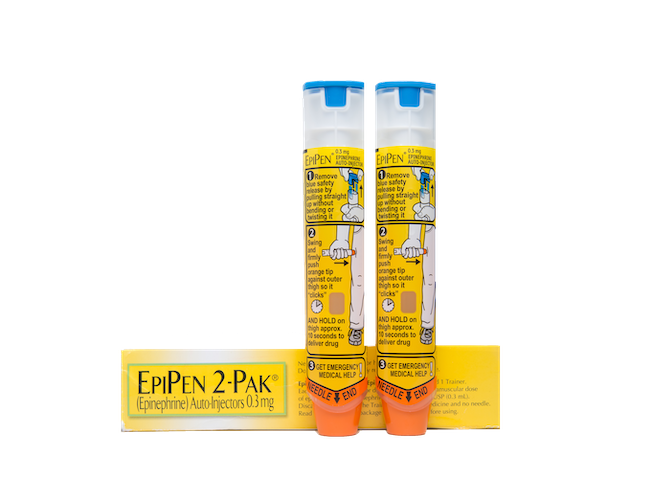22578VIC - Course in First Aid Management of Anaphylaxis
At Anzen Safety & Training, we deliver nationally recognised anaphylaxis training from our Nelson Bay and Tomago training centres, supporting workplaces and individuals across Port Stephens, Maitland, Newcastle, Lake Macquarie and the Hunter Valley. This course is designed for anyone who may need to provide first aid to a person experiencing anaphylaxis until medical help arrives.
Participants will learn to identify triggers, signs and symptoms of allergic reactions and anaphylaxis, and to administer adrenaline using an autoinjector confidently and safely. Training follows the Australian Resuscitation Council (ARC) guidelines and includes realistic scenarios to prepare you for both workplace and community emergencies.
Completing this course equips learners to develop and implement risk management and minimisation strategies for individuals diagnosed at risk of anaphylaxis in the workplace. You’ll also gain the skills to create individual anaphylaxis management plans and perform pre-emergency risk assessments to ensure preparedness.
This course provides nationally recognised certification for workers, first aiders and educators across all industry sectors — particularly relevant for childcare workers, school teachers and community support roles where allergy awareness and response are critical.
Book your Anaphylaxis First Aid Training course at our Nelson Bay or Tomago training centres today and gain the confidence to act quickly in a life-threatening situation.
-
The following units will be included in your certificate:
22578VIC - Course in First Aid Management of Anaphylaxis
VU23090 - Provide first aid management of anaphylaxis
VU23091 - Develop risk minimisation and risk management strategies for anaphylaxis
-
This course can be delivered/assessed in the workplace or at facility organised by the training provider.
-
Refresher min. duration - 120 minutes
Blended min. duration - 120 minutes
Face-to-face min. duration - 180 minutes
Online with face-to-face min. duration - 15 minutes
-
An individual undertaking this course with Allens Training Pty Ltd will need to demonstrate the following to be eligible for entry:
An official form of photo identification (e.g., driver’s licence, passport, or student ID).
As a minimum, entrants to the course must have literacy and numeracy competencies equivalent to the Australian Core Skills Framework Level 3. An example of an ACSF Level 3 competency is being able to read and comprehend the ASCIA Action Plan for Anaphylaxis, use and respond to communication techniques to request appropriate emergency assistance at the scene of a First Aid incident and use writing skills to complete incident reports.
Physical fitness to be able to meet the demands of the practical demonstration skills.
To successfully complete this course, students will need to demonstrate the following language, literacy, numeracy and digital (LLND) skills during training and assessment:
Learning: Follow clear steps and ask questions if help is needed understanding a process.
Reading: Read and understand simple health instructions, signs, and emergency plans.
Writing: Write down simple notes or fill in forms with basic personal or incident details.
Oral communication: Listen carefully and speak clearly when giving or receiving basic information.
Numeracy: Understand and use simple numbers, like measuring time or doses when required.
Digital Literacy: Use a mobile phone or basic device to read messages, follow online instructions, complete online forms or access learning resources.
Online learning: Students must have basic digital literacy skills to navigate online platforms, complete assessments, and access course materials. Before enrolment, students should assess their ability to engage in online learning. Support is available where required.
The online learning program can be found in the student portal. Students must have access to a computer, smart phone, tablet or other electronic device with access to the internet to complete the online studies and associated assessment tasks.
Delivery mode: Online with face-to-face: The online pre-course learning and theory assessment is expected to take approximately 2.5 hours to complete. These timeframes are estimates. Individuals with prior experience in similar training may complete the online component in less time, while those new to the subject may need more time to complete all the learning content and theory questions.
Delivery mode: Blended and/or Blended/Refresher: The online component is expected to take approximately 1 hour to complete. This component provides a brief overview of the content that will be covered during the face-to-face session. Please note that these timeframes are estimates. Individuals with prior experience in similar training may complete the online component in less time, while those new to the subject may need more time to work through the online component.
-
Individuals undertaking this course will be expected to complete both written and practical assessment tasks.
-
This certificate has an industry recommended renewal period of 36 months
-
Please note that enrolment to this course is made with Allens Training Pty Ltd RTO 90909. Please refer to the student handbook located on the RTO website allenstraining.com.au (https://allenstraining.com.au/students/student-handbook) for all details relating to rights and responsibilities including complaints and appeals.
-
Practical demonstrations:
Simulated Scenario – Administer the Adrenaline Autoinjector for Anaphylaxis
Simulated Scenario – First Aid for Allergic Reaction
Documentation:
Anaphylaxis Incident Report Form
Anaphylaxis Risk Assessment Form
Individual Anaphylaxis Management Plan
Theory assessment:
A written exam consisting of multiple choice questions.
-
Students are required to complete a self evaluation against the following core skills as part of the enrolment process. This will allow your trainer to understand any additional support that may be required during the course delivery and assessment.
Learning - I can follow clear steps and ask questions if I need help understanding a process.
Reading - I can read and understand simple health instructions, signs, and emergency plans.
Writing - I can write down simple notes or fill in forms with basic personal or incident details.
Oral Communication - I can listen carefully and speak clearly when giving or receiving basic information.
Numeracy - I can understand and use simple numbers, like measuring time or doses when required.

